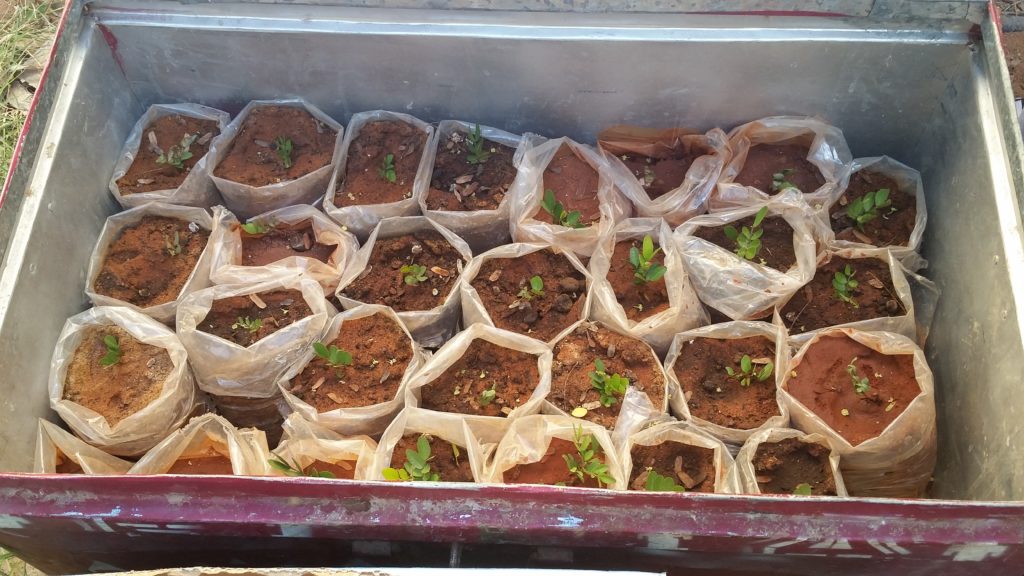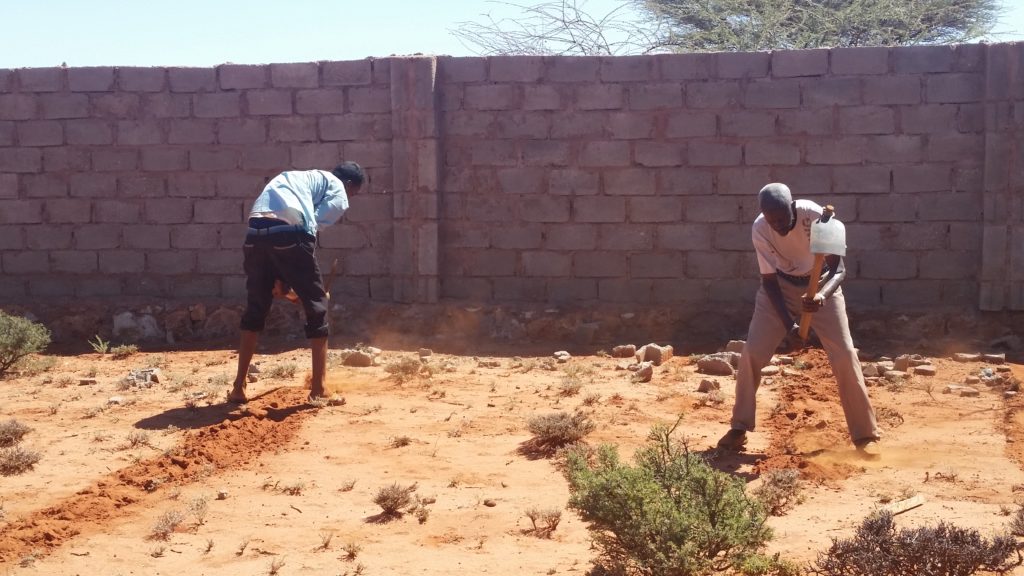As a result of the scoping mission that we conducted in May 2015, the Yeheb project team decided that there needed to be a trial planting mission tied in with the autumn rains and harvest season. At this time the ground is wet and Yeheb reseeds itself naturally. At the same time as we made the decision, we heard that our application for three years’ funding from the Darwin Initiative had been turned down. We did not know where the funding for the trial planting phases would come from. After much prayer we felt that, if it was the right thing to do, a way would be shown to us.
In August 2015, I reconnected by phone with Mahdi Jim’ale who back in 2013 had taken me to visit a farm outside Mogadishu, Somalia, where domesticated Yeheb has been growing since 1985. Mahdi offered to explore the possibility of growing seedlings in his home town of Guriel in Galgaduud, the central region of Somalia, during the autumn harvest season in October. We decided that a sample of seedlings and seeds should be prepared from this harvest for our project collaborators to trial plant in Somaliland in December.
Suddenly the planning just fell into place. Mahdi delivered 55 seedlings, 50 kg of seeds and 100 kg of soil from the area where plant the grows. This soil is essential for planting as it contains fungi which help the new seedlings to grow. The shipment travelled by road to Burao town, the centre for the Yeheb project in Somaliland. Our local coordinator received it and I flew to Somaliland to help with the planting. The mission was wholly financed by donations from three members of the project. Without this we could not have undertaken this important trial planting phase.
Six ecologically different sites were chosen for the trial. At each of the site, students, community groups or civil society organisations led both the planning and planting. At site one, on the campus of the University of Burao, the undergraduate students were fully engaged in the project as part of their final year assignments.
For me the most enriching experience of the mission was having Mahdi with us to advise and give guidance during planting. Mahdi is from a part of Somalia where conflict still flares up intermittently, and with which the population of Somaliland has little interaction. To have Mahdi, as a southerner, donating seeds and seedlings to fellow Somalis in Somaliland, which before 1991 was the northern part of the Somali Republic, was an exemplary gesture of peace and goodwill, in tune with IofC values and the aims of Agenda for Reconciliation.
I left Somaliland after three weeks and the good news that the seedlings were sprouting came a week after I got home. We could not have had a better start to 2016. They are still growing on all six sites.
We are fundraising for the next phase of the project, to attract donors who share our vision and who are prepared to fund us for three years.
by Muna Ismail



